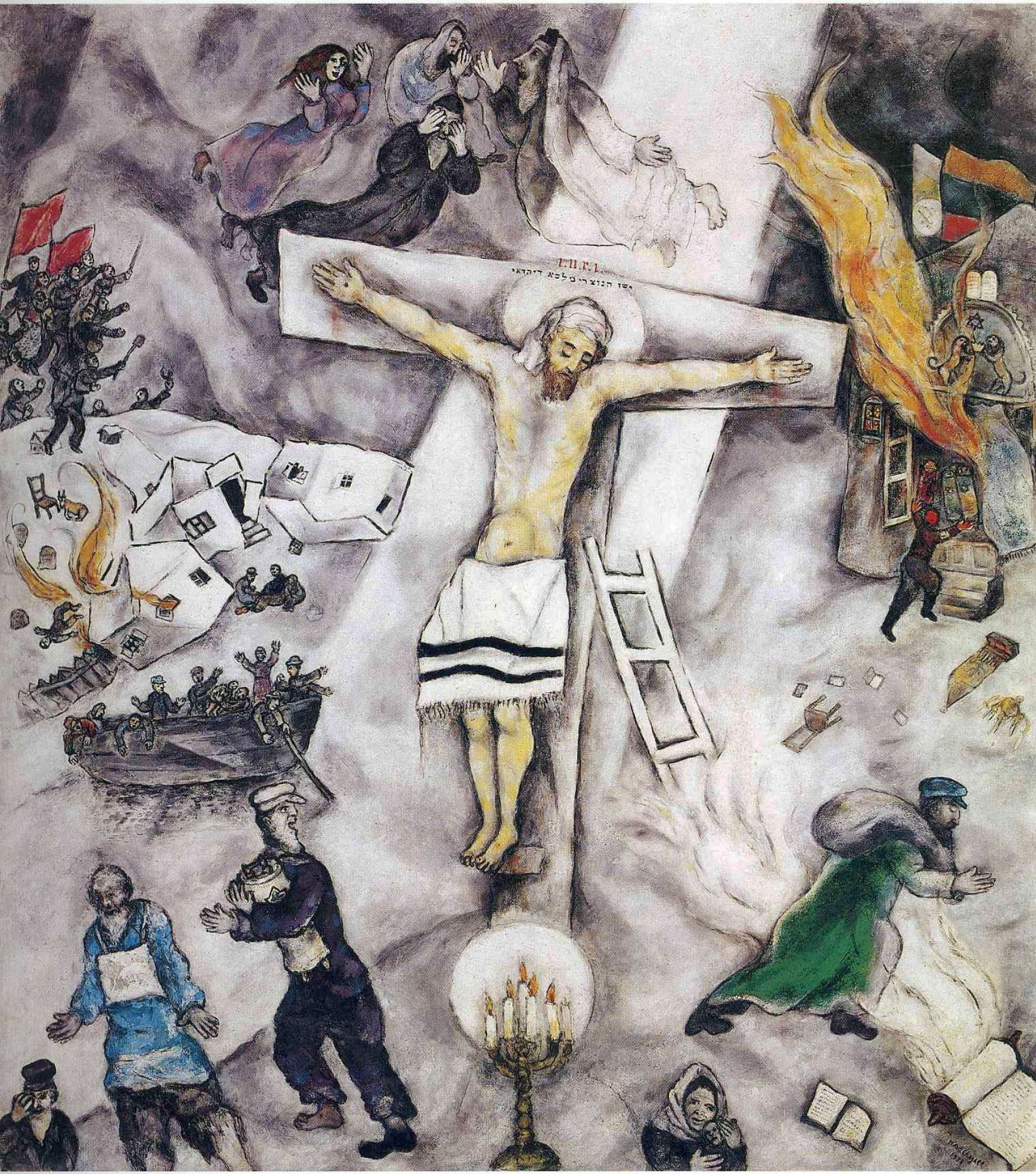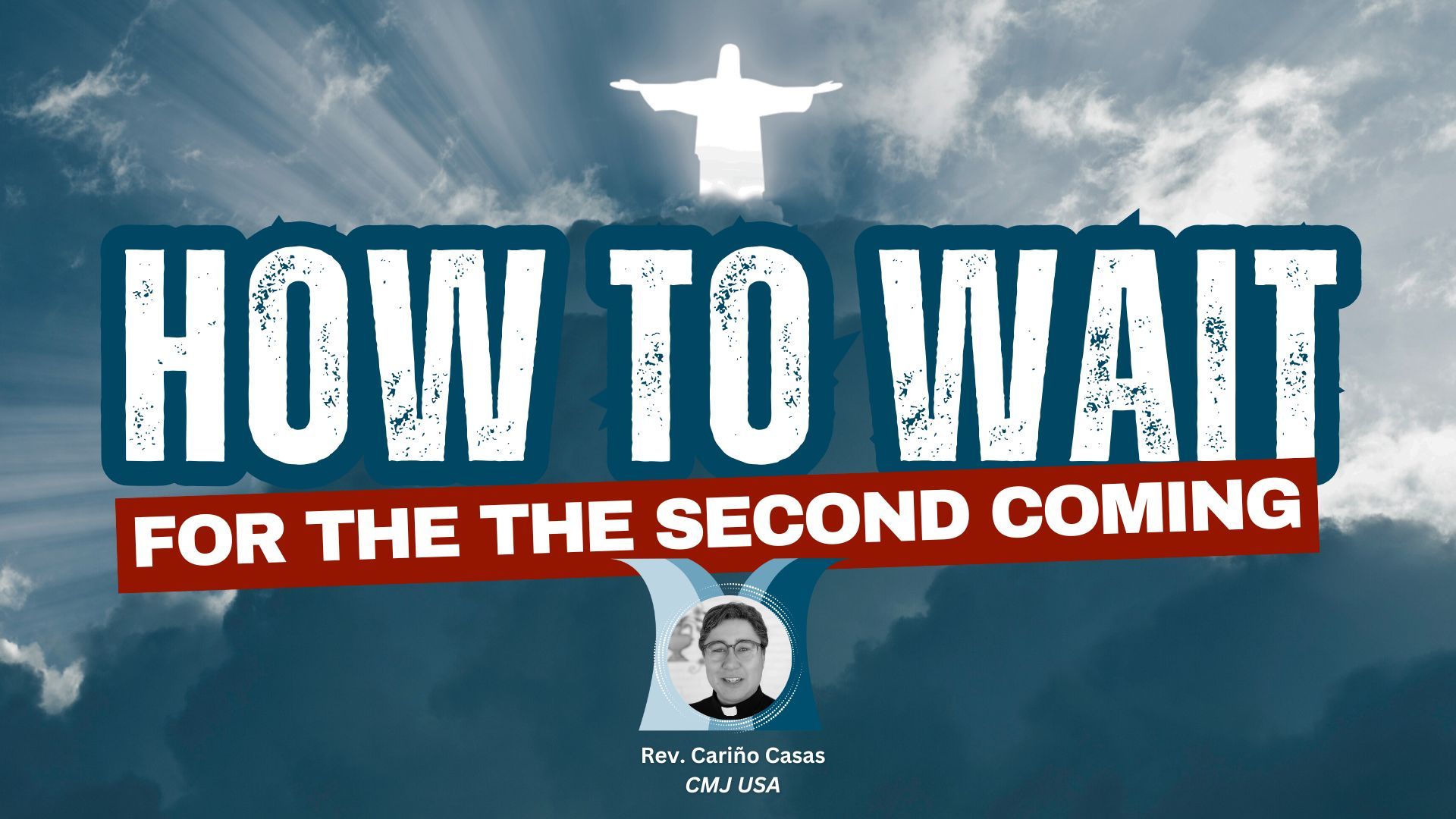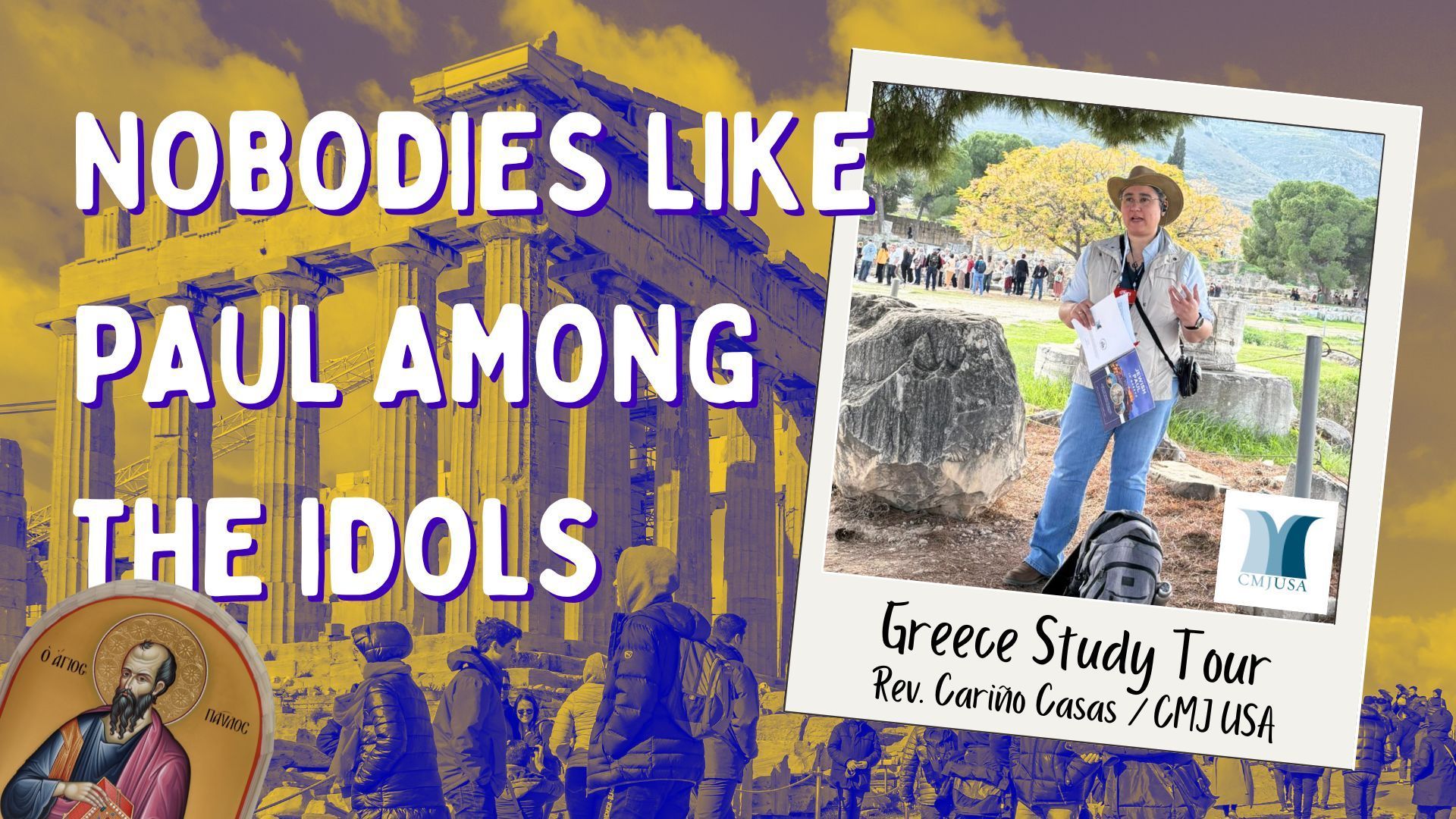Preached from Romans 8:12-17 on Trinity Sunday at Jonah’s Call Anglican Church, Pittsburgh, PA
Most of the church calendar commemorates an event in the life of Jesus the Messiah or of those disciples who have gone before us. But today, we stop to contemplate a theological reality that we see in the Scriptures but that is notoriously hard to talk about.
Not long ago, I had a long Uber ride with a Muslim driver. We had a thought-provoking conversation about faith. He asked really insightful questions. When we’re about a quarter mile from my destination, he asked me to explain the Trinity. I laughed and said, “I cannot do it in the time we have left together.”
Here’s what I might have told him:
We see in the Scriptures the one God of Abraham, Isaac and Jacob in three persons. We see these three persons in our Romans passage today:
- Verse 14, Spirit of God
- Verse 15, Father God
- Verse 17, Christ/Messiah
We also see them at Jesus’ baptism. As Jesus was immersed in the Jordan River, the Spirit of God descended like a dove and the voice of the Father boomed from heaven, “This is my beloved son in whom I am well pleased” (Matt 3:13-17).
Seeing multiple persons in the Godhead isn’t a New Testament phenomenon. Christianity doesn’t come up with a new way of seeing God. We are building on what Judaism was already starting to perceive during and after the Babylonian Exile.
In Daniel 7, the prophet has a vision of the throne room in Heaven. And there’s a shock for him and Jewish readers since. There are two thrones. On one sits the Ancient of Days and the other is for “one like a Son of Man.”
Is that a human Daniel sees on the second throne? Is he God? How do we reconcile two powers in heaven with the creed from Deuteronomy 6 that Jews still profess to this day: “Hear, oh Israel, the LORD is your God. The LORD is one.”
Those questions have provoked much debate in the Jewish community for more than 2,000 years.
Still, because of Daniel 7 and subsequent Jewish writings, some Jews in the first century did expect a divine Messiah.[i] This is why the Jewish authors of the New Testament can write about Jesus’ preexistence (John 1:1-3ff), divinity and his equality with God the Father (Phil 2:6-11).
The first people to recognize Jesus’ messiahship and divinity are Jews. In Acts 2 and Acts 4, we see 8,000 Jewish people come to faith in Jesus as Messiah and Lord.
The mechanics of the Trinity – how one God can be three persons – is not something I will tackle today. Instead, let’s look at what this one God in three persons offers us and what he calls us to.
Last week we marked Pentecost – or Shavuot – the Jewish holiday on which God fulfills his promise through the Hebrew prophet Joel to pour out his Holy Spirit on all humanity. Because Jesus lived, died, was raised from the dead, and ascended into heaven, we now have the Holy Spirit breathing new life into us.
Throughout the book of Romans, Paul has been explaining how we are all sinners who cannot enter into the presence of God. We know we are sinners because each of us battle our selfish natures every day. We battle to not hate, to not lie or covet. We battle to think of others before ourselves.
But to those of us who have put our hope in Jesus, Paul tells us to not identify with that old selfish nature but with the Holy Spirit now poured into us. We are selfish and egotistical, but God instead sees humble Jesus and considers us good, righteous.
In Romans 8, the verse before today’s passage, Paul says,
11 … if the Spirit of the One who raised Yeshua from the dead is living in you, then the One who raised the Messiah Yeshua from the dead will also give life to your mortal bodies through his Spirit living in you.
When we identify with the Spirit, with Jesus, the Father enables us to be humble and giving and loving even to our enemies. We can, like Jesus, pray for those who offend and persecute us and say, “Father, forgive them for they know not what they do.”
When we do that, we prove that we’ve been adopted by God.
Let’s look at verses 14-17:
14 All who are led by God’s Spirit are God’s sons.
15 For you did not receive a spirit of slavery to bring you back again into fear; on the contrary, you received the Spirit, who makes us sons and by whose power we cry out, “Abba!” (“Father!”).
16 The Spirit himself bears witness with our own spirits that we are children of God;
17 and if we are children, then we are also heirs, heirs of God and joint-heirs with the Messiah—provided we are suffering with him in order also to be glorified with him. (CJB)
When we decide to follow Jesus, when God breathes his Holy Spirit into us at baptism, we go from being sinful sons and daughters of fallen Adam and to being righteous sons and daughters of God. The Holy Spirit enables us to cry out Abba to God the Father.
Abba is like saying Daddy in Aramaic. This word is in use even today in modern Hebrew. In Israel, you will hear children calling out to their dads, “Abba, Abba.” Those of us in Christ, following Jesus the Messiah, are little dear children in God’s sight. And he welcomes for us to call out to him in prayer, “Abba, Daddy, Father.”
God is a good father. If you’ve had a bad earthly father, God wants to be that loving daddy you didn’t have. It pleases him for you to call out to him “Abba.”
When you do call out to the Father, that is the Holy Spirit testifying that we are God’s children. That’s the Holy Spirit giving you utterance.
Now we get to one of my life verses, one of those verse that you know by heart and keep coming to in times of uncertainty or trouble.
As good Christians, we should all be Bible readers. In our Anglican tradition, we have the daily office that keeps us moving through the Scriptures. A lot of times, we are busy, and we’re reading quickly to get done. Yes? I admit it.
But other times, when the Holy Spirit really wants to get our attention, a verse will just fly up and slap you. It just pops. You see something you’d somehow missed before.
I remember when that happened to me with Romans 8:17. I know I’m a daughter of God. There is great comfort in knowing that, that God will provide for me, that he’ll answer my call,
17 and if we are children, then we are also heirs, heirs of God and joint-heirs with the Messiah—provided we are suffering with him in order also to be glorified with him. (CJB)
What does Jesus inherit for saying to the Father “not my will but yours be done”? What does Jesus inherit for being the Suffering Servant and dying to redeem humanity from the clutches of sin?
Let’s go back to Daniel 7. What does Daniel see?
13 “I saw in the night visions, and behold, with the clouds of heaven
there came one like a son of man,
and he came to the Ancient of Days and was presented before him.
14 And to him was given dominion and glory and a kingdom,
that all peoples, nations, and languages should serve him;
his dominion is an everlasting dominion,
which shall not pass away,
and his kingdom one that shall not be destroyed.
When you see Jesus call himself the Son of Man in the Gospels, this is what he’s pointing to. He is saying he is the human-figure who takes a seat next to the Ancient of Day and is given dominion over all creation, he is given a kingdom that encompasses “all peoples, nations, languages.” The Son of Man is given the everlasting kingdom that will not pass away or be destroyed.
That is what Jesus, the Son of Man inherits.
In Revelation 5, John also sees this, but from a slightly different perspective.
6 And between the throne and the four living creatures and among the elders I saw a Lamb standing, as though it had been slain …
11 Then I looked, and I heard around the throne and the living creatures and the elders the voice of many angels, numbering myriads of myriads and thousands of thousands,
12 saying with a loud voice,
“Worthy is the Lamb who was slain, to receive power and wealth and wisdom and might and honor and glory and blessing!”
So what does Jesus inherit? A kingdom that rules all the nations. He inherits power and wealth, wisdom and might, honor and glory and blessing!
So let’s read Romans 8 again:
17 and if we are children [of God], then we are also heirs, heirs of God and joint-heirs with the Messiah…
Mind blown! 🤯 I’m not sure we can even process this. Paul is saying that those of us who are filled with God’s Spirit are his sons and daughters and we are even co-heirs with Messiah. We are co-heirs with the Son of Man. We are co-heirs with the King of kings. Co-heirs!
WOW!
There is a condition: “we are also heirs, heirs of God and joint-heirs with the Messiah—provided we are suffering with him in order also to be glorified with him.”
… “provided we are suffering with him.”
Whoa. That’s a wow, too. We are co-heirs with Jesus, and that privilege comes with the responsibility of suffering.
What does this mean?
Jesus is a rabbi, He is our rabbi. We are his disciples. What do disciples do? We imitate our rabbi. We live with him. We watch his every move: how he prays, how he has compassion on the needy, how he calls out hypocrisy, how he finds time to rest, how he suffers with the sick and broken-hearted.
Then we do the same.
Our willingness to step into somebody’s danger or sadness speaks volumes to them. We are not trustworthy if we only preach from a distance and don’t let poverty, sickness, war touch us.
Back when AIDS made its first appearance, there was such fear and anxiety about the disease. Nobody wanted to risk either getting sick or being associated with those who were sick. If you had to engage with an HIV-positive patient, it was through gloves, gowns, and masks.
Then Princess Diana dared to see not the diagnosis but the human. She dared to visit HIV-positive patients without all the protective gear.[ii] Her actions interceded for AIDS patients and began to reduce society’s anxiety.
I just came from Israel. There are no Starbucks in Israel. In most of the world, you can get Starbucks coffee, but not in the Holy Land.
Starbucks tried to enter the Israeli market in the 2000s. They made some miscalculations, like trying to import Seattle’s moody coffee shop aesthetic into Tel Aviv the beach vibe. But their biggest mistake was refusing to open a shop in Jerusalem.[iii]
Israel suffered years of suicide bombings during the Second Intifada in the early 2000s. One of the most notorious was the Sbarro Pizza bombing in August 2001, when 15 were killed and 130 injured.[iv]
Starbucks did not want to risk one of its coffee shops getting bombed, so it avoided Jerusalem.
Israelis noticed. They took it personally. If Starbucks couldn’t really step into the reality of Israeli life, with all its risks, Israelis had no interest in spending their shekels on Starbucks coffee.
So it is with us and the Good News we carry. If we can’t step into somebody’s pain and suffering, why would they be interested in our Jesus?
This is why I risk going to Israel in this time. I hope it speaks to Israelis and our Jewish neighbors that I see their pain and I’m willing to step into it. I’m learning to love like Jesus loves us.
There are others who are stepping into Palestinian suffering for the sake of Christ. They are imitating our crucified Lord.
Yesterday morning, I read that three Christian missionaries were murdered in Haiti.[v] They suffered with Christ on behalf of the Haitians. They have their reward now; they have claimed their inheritance as co-heirs of the Messiah. They have added to the sufferings of Jesus for the people of Haiti. The seed they have sown will not return to God empty.
Jesus, our great high priest, still suffers with us. He intercedes for us before the Father. Intercession is born of empathy and compassion. He knows our plight, and so he pleads our case, he asks for mercy for us, for healing, for provision. And the Father, ever in love with the Son, gives him his heart’s desires. The Spirit, ever in love with the Father and the Son, carries down their comfort to us.
This is the Trinity in motion. Let’s meditate on how this tri-unity of love invites us into their family and teaches us to love one another as they love each other and love us.
As we have been invited into the family of Love, let us invite others. Who around you is suffering? Who needs to see Jesus in you suffering with them?
You are a co-heir with Messiah. Are you ready to suffer with him? Are you ready to share the love you’ve received from God with your neighbor – the one sleeping on the streets, the one dying of cancer, the one fighting addiction, the one suffering abuse.
Let us imitate our Beloved Jesus – the Suffering Servant – and receive our full inheritance.
Let us pray.
Almighty and everlasting God, in your tender love for us you sent your Son our Savior Jesus Christ to take upon himself our nature, and to suffer death upon the Cross, giving us the example of his great humility: Mercifully grant that we may walk in the way of his suffering, and come to share in his resurrection; through Jesus Christ our Lord, who lives and reigns with you and the Holy Spirit, one God, for ever and ever. Amen.[vi]
Footnotes
i See Daniel Boyarin,
The Jewish Gospel.
ii “How Princess Diana Changed Attitudes to Aids.” BBC News, 5 April 2017. https://www.bbc.com/news/av/magazine-39490507.
iii Aaron Priel, “Starbucks in Israel: What Went Wrong?” Just Food, 12 August 2002. https://www.just-food.com/features/starbucks-in-israel-what-went-wrong.
iv “On This Day: Suicide Bombing Kills 15 at Sbarro Pizzeria.” The Jerusalem Post | JPost.Com, 9 August 2021. https://www.jpost.com/israel-news/on-this-day-suicide-bombing-kills-15-at-sbarro-pizzeria-676228.
v Andy Rose, AnneClaire Stapleton, Hande Atay Alam and Caitlin Stephen Hu, “Three Missionaries, Including American Couple, Killed by Gang in Haiti.” CNN, 24 May 2024. https://www.cnn.com/2024/05/24/us/american-missionary-couple-haiti/index.html.
vi Collect for Palm Sunday, Book of Common Prayer 2019, Anglican Church of North America.




